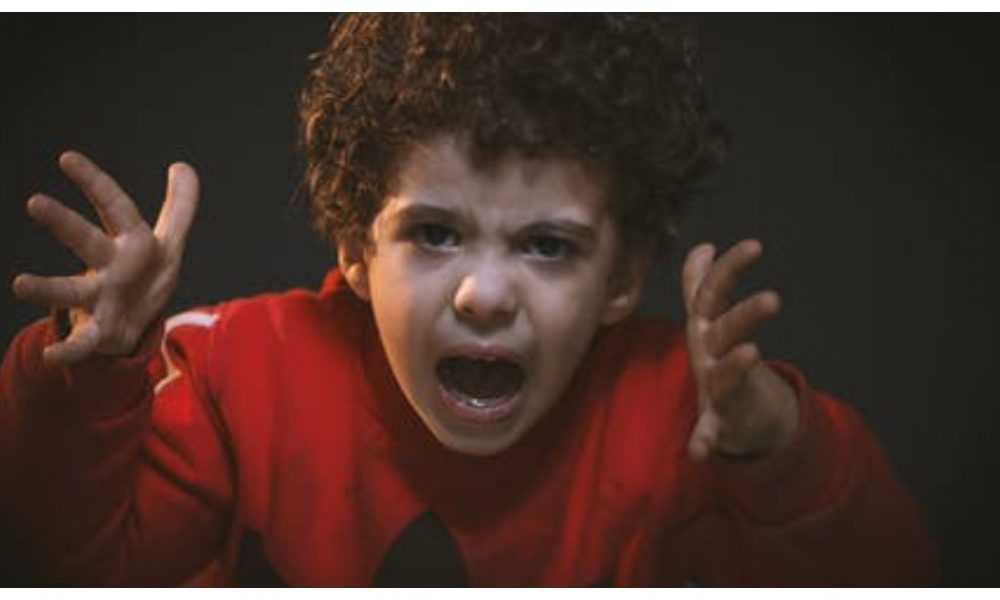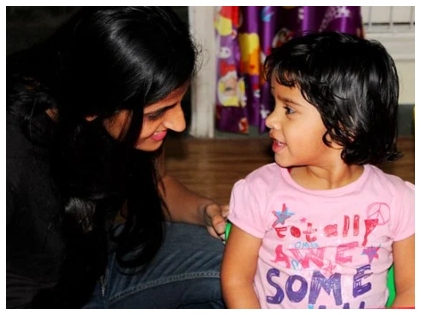
Here’s How to Teach Your Kid the Tricks of Anger Management!

 When kids get angry, both parents and kids have a tough time pacifying the child. Some children have anger issues and coping issues and they end up being overly frustrated.
When kids get angry, both parents and kids have a tough time pacifying the child. Some children have anger issues and coping issues and they end up being overly frustrated.
They get hassled over minor events. They shout and yell and gradually become aggressive. If your child show bouts of angry outbursts, then it is time to take a significant step to ensure their relationships improve and so does their quality of life.
It’s important to let them know where they are going wrong and deal with their feelings in a healthy way. Guidance from a certified mental health specialist can really come in useful.
Teach Your Children to Label Their Feelings
 Kids have a tendency to lash out when they are unable to understand their feelings and are unable to verbalize them.
Kids have a tendency to lash out when they are unable to understand their feelings and are unable to verbalize them.
A child may not have any other way of expressing their anger than lashing out. Or they may feel this is the only way of expressing their dissatisfaction or get your attention.
Understand what your child is going through and teach them how they can label feelings. Verbalising their emotions is a great way to control their feelings, words such as mad, sad, happy, scared will help them label their emotions better. Once they get the drift of these basic emotions, they may graduate to deeper emotions such as frustrated, worried, lonely, and disappointed.
Pause and Discuss
 Stop a tantrum before it gets to the next level, so learn to say no or discuss with the child as soon as he/she starts requesting something.
Stop a tantrum before it gets to the next level, so learn to say no or discuss with the child as soon as he/she starts requesting something.
You can discuss it with your child. Instead of giving an outright answer, you now have time to think about it. Now you can either say no or divert your child’s attention.
Let your child know why you are denying your kid the toy he/she is so insistent on buying. You want your child the feeling that you are listening to him/her care about his needs, but make him/her understand the difference between a real need or just a need.
Think About a Calm-Down Plan
Teach children what can they do when they are angry. Rather than teaching them to throw something you can make it more fun, by asking them to go to a place that you can call a calming corner or an anger tent. There they can blow off their steam as they indulge in various construction activities such as reading, coloring, or playing until they feel their anger is slowly dissipating away and they find their zen mode.
You and your kid may even concoct a calm down kit, that has all the interesting things that he/she likes. It may contain some fun books, a toy, a lotion, and more. So, that when they are upset, ask them to get to their calm-down kit, this makes the child more responsible and find a way or hack to allow themselves to calm down without seeking help from others.
Teach Them Anger Management Techniques
 One of the best ways to help a child who has anger issues is to teach them certain anger management techniques.
One of the best ways to help a child who has anger issues is to teach them certain anger management techniques.
Teach them the art of taking deep breaths, for example, it is a great hack for anyone who has anger issues. You can even ask them to take ten breaths before they do anything or speak out.
Or they can also go for a walk. Going for a quick walk, counting to 10 can turn out to be a helpful way in dealing with many emotions.
You can teach self-discipline, too. Some kids need a considerable amount of coaching to find a way of finding a way out of their current state of mind.
Don’t Give in to their Tantrums
Kids often resort to angry outbursts in order to get their needs met. If a child seems difficult and gives in to temper tantrums and the busy parents may give in to their demands just to quiet them, then the kids will take advantage of the situation.
Don’t give in to your child, this way you will be able to avoid an inevitable meltdown. Although, it may work as a short-term hack in the long run the child may start getting behavioral issues. Instead, be calm and make your child understand why their particular demand cannot be met. Don’t lose your temper, and give vent to your anger, remember your child may mimic the same behavior as you. So, stay calm, be gentle and teach them how they can work on their anger better.
More in Mental Health
-
`
5 Reasons Why Dad’s Side of the Family Misses Out
Family bonds are intricate and multifaceted, often creating a unique tapestry of connections. However, many people notice a peculiar trend: stronger...
July 12, 2024 -
`
A Quick Guide on How to Get Short-Term Disability Approved for Anxiety and Depression
Living with anxiety or depression poses unique challenges, particularly in the workplace, where stress can exacerbate symptoms. For many, short-term disability...
July 5, 2024 -
`
Why Do People Feel Sleepy After Eating?
Is feeling sleepy after eating a sign of diabetes? Well, not directly. There are many reasons why you feel drowsy after...
June 20, 2024 -
`
What Is High-Functioning Depression? Symptoms and Treatment
High-functioning depression may not be a term you hear every day, but it’s a very real and challenging experience for many....
June 13, 2024 -
`
Kelly Clarkson’s Weight Loss Ozempic Journey – Debunking the Rumors
In a refreshing moment of transparency, Kelly Clarkson, the beloved singer and talk show host, sheds light on her remarkable weight...
June 3, 2024 -
`
What Is the Best Milk for Gut Health and Why?
In recent years, the milk section at the grocery store has expanded far beyond the traditional options. While cow’s milk has...
May 30, 2024 -
`
Do Dental Implants Hurt? Here’s All You Need to Know
When you hear “dental implants,” you might wince at the thought of pain. But do dental implants hurt as much as...
May 24, 2024 -
`
5 Key Differences Between A Psych Ward & A Mental Hospital
Curious about the differences between a psych ward and a mental hospital? You are not alone. With the mental health conversation...
May 16, 2024 -
`
It’s Official! “Selling Sunset’s” Christine Quinn & Husband Christian Dumontet Are Parting Ways
Have you ever found yourself unexpectedly engrossed in the personal lives of celebrities, especially when their stories take dramatic turns? Well,...
May 9, 2024










You must be logged in to post a comment Login